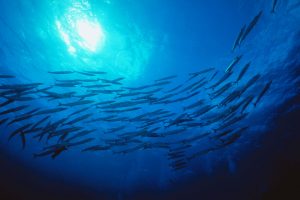
Seafood Industry and Blockchain Project
Blockchain technology was introduced by Environmental organization WWF to the Pacific Islands’ tuna industry having a purpose to support exterminating illegal fishing.
The Blockchain Supply Chain Traceability Project tracks fish from vessel to the supermarket. It uses digital technology in the fresh and frozen tuna sectors of the Western and Central Pacific region to strengthen supply chain management. Blockchain as a verifiable digital record helps everyone to see where and when fish are caught and processed.
For the project, WWF-New Zealand, WWF-Australia and WWF-Fiji have teamed up with global blockchain venture studio ConsenSys, ICT company TraSeable and tuna fishing and processing company Sea Quest Fiji to deliver the project in Fiji.

WWF-New Zealand CEO Livia Esterhazy says, “For years, there have been disturbing reports that consumers may have unknowingly bought tuna from illegal, unreported and unregulated fishing and, even worse, from operators who use slave labor.
WWF- New Zealand CEO Livia Esterhazy says that for years consumers have bought tuna fish from illegal sources, but blockchain technology could help to scan the process of tuna packaging with a simple smartphone, particularly to define where and when the fish was caught, by which vessel and fishing method. Consumers will be sure they have bought legally-caught tuna with no slave labor.
The buying and selling of Pacific tuna is currently either tracked by paper records, or not at all. Now fishermen can register their catch on the blockchain through radio-frequency identification (RFID) e-tagging and scanning fish.
Currently, there are made steps to find a partner in the project to complete the tuna’s traceability story.



